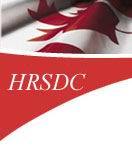By Naomi Ambrose, Contributor
Over 100 Douglas College students participated in a nationwide pilot project that could help college students to increase their Essential Skills levels—skills valuable to many careers that Douglas trains students in.
These essential skills, according to HRSDC (Human Resources and Skills Development Canada), are nine essential skills that are necessary for work, life, and learning. They include document use, reading text, numeracy, writing, computer use, working with others, oral communication, thinking skills, and continuous learning. These essential skills are measured on a five-point scale in which Level 3 is the recommended minimum level needed to meet the challenges of today’s world—challenges that many college students may have difficulty overcoming.
Research from T. Scott Murray, the senior Advisor, Human Resources in Science and Technology at Statistics Canada reveals that between 15–32 per cent of students admitted to Canadian Colleges have Essential Skills at Level 1 and 2. Students at these levels do not have the foundational skills necessary to learn new skills and adapt to situations. This puts them at a significant disadvantage for learning at the college level. They are more likely to have challenges when it comes to meeting deadlines and completing assignments successfully.
Since many of these students were more likely to encounter these challenges, the ACCC (Association for Canadian Community Colleges), funded by HRSDC, embarked on a project entitled “Developing a National Framework for Essential Skills: Seeking Harmony While Respecting Diversity.” The program is conducted with
participation from eight colleges across Canada, with Douglas College as the lead institution.
[quote style=”boxed”]…essential skills are measured on a five-point scale in which Level 3 is the recommended minimum level needed to meet the challenges of today’s world—challenges that many college students may have difficulty overcoming.[/quote]
At Douglas College, the Training Group spearheaded the Douglas College leg of the project. “The Training Group at Douglas College has extensive experience in Essential Skills training and has been involved in numerous Essential Skills projects so when the opportunity arose to participate in this project, we were happy to do so,” said Cat Adler, the Skills Coach from the Training Group and student recruiter for the project.
Adler further stated that “we focused on students studying in Health Sciences and Business since these are the areas with high employability rates.” These students participated in weekly study sessions from February to April whereby they received free tutoring on study skills techniques. They also got a chance to win Tim Horton gift cards, tuition, and iPads. To qualify for the study sessions, students had to score a level 2 in Document Use.
To assess the students’ level, Adler stated that “the TOWES (Test of Workplace Essential Skills) or the CLE (Canadian Literacy Evaluation) methods were used. These assessments focused on reading text, document use, and numeracy.”
When asked about the improvement in the students’ scores from the post assessment test, Adler replied “So far, out of 21 students that scored a Level 2 in Document use, 17 had gone up to Level 3. Out of six students that scored a Level 2 in Reading Text, all six had gone up to Level 3 and out of seven students that scored a level 2 in numeracy, all seven had gone up to Level 3, while two students that had been at Level 3 dropped to Level 2.”
Adler further stated that “Our primary goal is to show that with a relatively short term intervention, we can help students to be more successful at school (which should later on translate to increased success at work), by increasing their Essential Skills Level from a Level 2 to a Level 3.”

